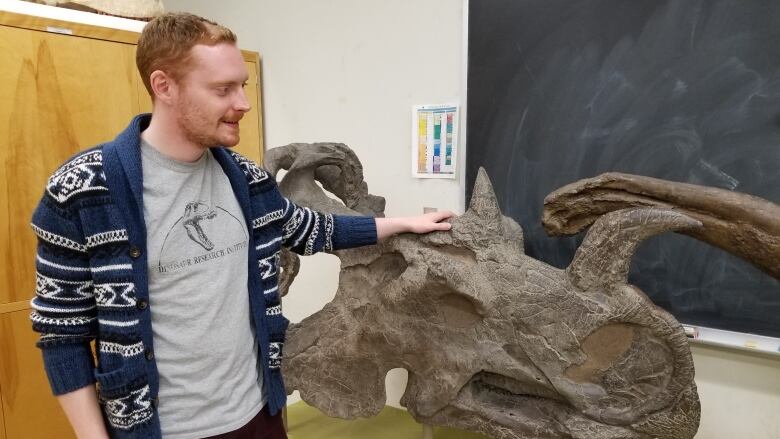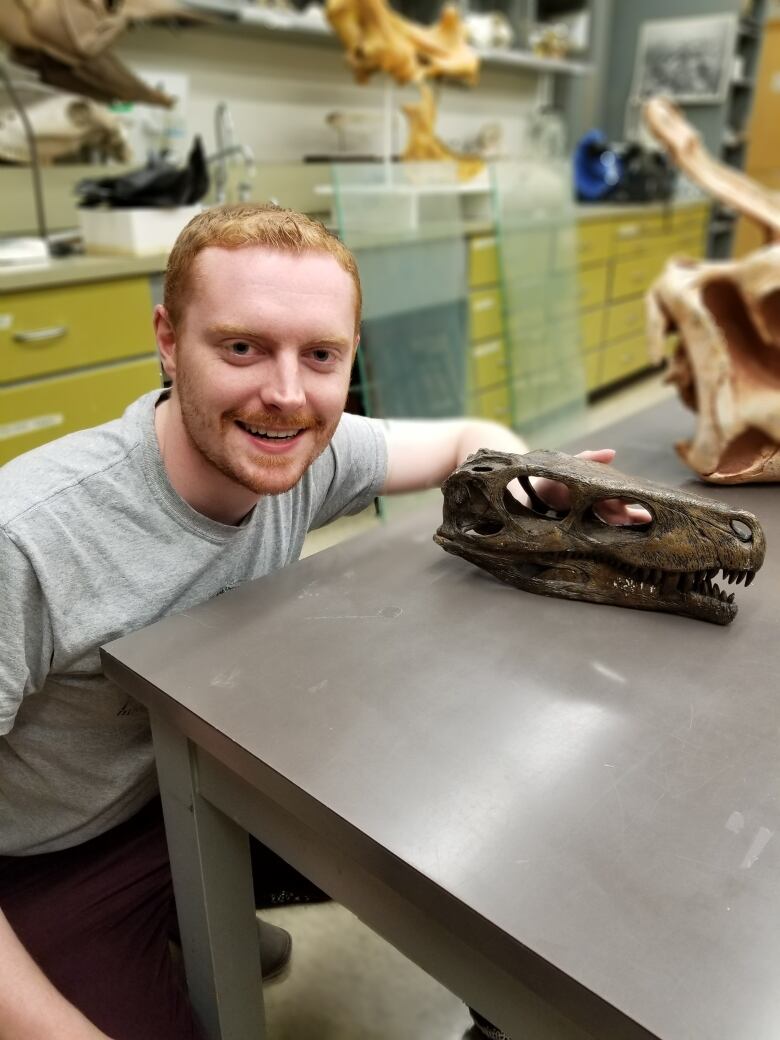The 'Jurassic Park effect': How a generation fell in love with dinosaurs
University of Alberta professor credits Jurassic Park for inspiring dinosaur research

When Gavin Bradley was a boy,he was already dreaming about his career thanks to a Hollywood blockbuster.
Now a University of Alberta paleontologist, Bradley told CBC Radio's Edmonton AM heis "100 per cent in the Jurassic-Park-effect camp."
Researchers use the term "Jurassic Park effect" to refer to a theory that the movie franchise has led to an increase in the number of paleontologists, not to mention more research funding and new technology.
"It's not an exaggeration to say there's no paleontologist in their 20- or 30-somethings that hasn't been directly or indirectly impacted by that movie," said Bradley.

Bradley was six or seven when the first Jurassic Parkmovie came out in 1993. He watched it over and over again.
But studying dinosaurs was hard in Belfast, Ireland, a fossil desert. So Bradley relied on books and exhibits to satiate hiscuriosity.
- Jurassic World has Royal Tyrrell paleontologist dreaming up scariest dinosaur hybrid
- Jurassic World reviewed by 9-year-old amateur paleontologist
Jurassic Park is also partly to thank for dinosaur-related research funding, he said.
The films led to "more public interest, which meant more people wanted to see them in museums, so more funding was attached to the field," Bradley said.
The franchise's success, he said, inspired Universal Studios and Amblin Entertainment to start the Jurassic Foundation, a non-profit organization dedicated to advancing international dinosaur research.
The technology imagined in Jurassic Park has also been a driving force, he said, and today morepeople are devoting their lives to the study of dinosaurs.
"The time we're living in now is referred to as the golden age of dinosaur discovery," Bradley said."On average, a new dinosaur species is described every single week."
- New dinosaur finds soar in 'golden age' of discovery
- Dinosaur blood cells, proteins found in crummy Alberta fossils
Bradley, 28,moved to Alberta seven years ago because the province is infested with fossils.
He teaches undergraduate students at the University of Alberta and also leads online courses.
A six-year-old took one of Bradley's online courses a dozen times before traveling from the United States to the University of Alberta for a lab tour.
"It's really cool for me to think that a course... could be the Jurassic Park for this next generation," he said.












_(720p).jpg)


 OFFICIAL HD MUSIC VIDEO.jpg)
.jpg)



























































































